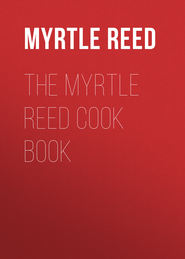По всем вопросам обращайтесь на: info@litportal.ru
(©) 2003-2024.
✖
The Master's Violin
Автор
Год написания книги
2017
Настройки чтения
Размер шрифта
Высота строк
Поля
Through the house resounded the steady tread of muffled feet. Of all the horrors of Death, the worst is that seemingly endless procession who come to offer “sympathy,” to ask if there is anything they can do. Mere acquaintances, privileged only by a casual nod, break down all barriers when the Conqueror comes. Is it that idle curiosity which occasionally dominates the best of us, or is it Life, triumphant for the moment, looking forward fearfully to its inevitable end?
Some “friend of the family,” high in its confidence, assumes the responsibility at such times. Chance callers are rewarded with grisly details and grewsome descriptions of the soul struggling to free itself from its bonds. We are told how the others “took it,” when at last the sail was spread for the voyage over the uncharted sea.
In the hall, straight as a soldier under orders, stood Doctor Brinkerhoff. “No, madam,” he would say, “there is nothing you can do. The arrangements are made. I will tell Mrs. Irving and Miss Temple that you called. Yes, we were expecting it. She died peacefully; there was no pain. To-morrow at four.”
And then again: “Thank you, there is nothing you can do, but it is kind of you to offer. The ladies will be grateful for your sympathy. Who shall I say called?”
“Iris,” pleaded Margaret, “come away.”
The girl started. “I can’t,” she answered, dully.
“You must come, dear – come into my room.”
Unwillingly, Iris suffered herself to be led away. It is only the surface emotion which is relieved by tears. Within the prison-house of the soul, when Grief, clad in grey garments, enters silently and prepares to remain, there is no weeping. One hides it, as the Spartan covered the bleeding wound in his breast.
“Dear,” said Margaret, “my heart aches for you.”
“She was all I had,” whispered Iris.
“But not all you have. Lynn and I, and Doctor Brinkerhoff – surely we are something.”
“Did you ever care?” asked Iris, her despairing eyes fixed upon Margaret.
The older woman shrank from the question. She was tempted to dissemble, but one tells the truth in the presence of Death.
“Not as you care,” she answered. “My mother broke my heart. She took me away from the man I loved, and forced me to marry another, whom I only respected. When my husband died, I had my freedom, but it came too late. When my mother died – she died unforgiven.”
“Then you don’t understand.”
“Yes, dear, I understand. You must remember that I loved her too.”
“Suppose it had been Lynn?”
“Lynn!” cried Margaret, with her lips white. “Lynn! Dear God, no!”
Iris laughed hysterically. “You do not understand,” she said, with forced calmness, “but you would if it were Lynn. You would not let me keep you away if it were Lynn instead of Aunt Peace, so please do not disturb me again.”
Back she went, into the darkened chamber, and closed the door.
Lynn walked back and forth through the halls aimlessly. All along, he had felt the repulsion of the healthy young animal for the aged and ill. Now he was unmoved, save by the dank, sweet smell of the house of death. It grated on his sensibilities and made him shudder. He wished that it was over.
From his mother, he felt a curious alienation. Her eyes were red, and, man-like, Lynn hated tears. From Doctor Brinkerhoff, too, a gulf divided him.
His fingers itched for his violin, but he could not practise. It would not disturb Aunt Peace, but it would be considered out of keeping with the situation. The Doctor’s rooms over the post-office were also impossible. He smiled at the thought of the gossip which would permeate East Lancaster if he should practise there.
But at Herr Kaufmann’s? His face brightened, and with characteristic impulsiveness he hastened downstairs.
Doctor Brinkerhoff still stood in the hall, a little wearily, perhaps, but calmness overlaid his features like a mask. Lynn wondered at the change in him.
“Mr. Irving,” he said, huskily, “you were going out?”
“Yes,” replied Lynn, “to Herr Kaufmann’s. I can do nothing here,” he added, by way of apology.
“No,” sighed the Doctor, “no one can do anything here, but wait one moment.”
“Yes?” responded Lynn, with a rising inflection. “Is there some message?”
“It is my message,” said the Doctor, with dignity. “Say to him, please, that no provision has been made for music to-morrow, and that I would like him to come. Be sure to say that I ask it.”
“Very well.”
Lynn moved away from the house decorously, though the freedom of the outer air and the spring of the turf beneath his feet lifted the cloud from his spirits and urged him to hasten his steps.
Doctor Brinkerhoff looked after him, his old eyes dim. The impassable chasm of the years lay between him and Lynn – a measureless gulf which no trick of magic might span. “If I had it to do over,” said the Doctor, to himself, – “if I had my lost youth – and was not afraid, – things would not be as they are now.”
Margaret saw him from her upper window, and something tightened round her heart, as though some iron hand held it unpityingly. Then came a great throb of relief, because it was Aunt Peace, instead of Lynn.
Iris, too, had seen him as he left the house. She perceived that he was eager to get away – that only a sense of the fitness of things kept him from running and whistling as was his wont. From the first, she had known that it was nothing to him. “He has no heart,” she said to herself. “He is as cold as – as cold as Aunt Peace is now.”
Slow torture held the girl in a remorseless gird. Dimly, she knew that some day there would be a change – that it could not always be like this. Sometime it must ease, and each throb would be sensibly less of a hurt – just a little easier to bear. With rare prescience, also, she knew that nothing in the world would ever be the same again – that she had come to the dividing line. One reaches it as a light-hearted child; one crosses it – a woman.
“No,” said the Doctor, for the fiftieth time, “there is nothing you can do. Mrs. Irving and Miss Temple are not receiving. Yes, we expected it. The end was very peaceful and she did not suffer at all. Yes, it is surely a comfort to know that. The arrangements are all made. Yes, thank you, we have the music provided for. It was kind of you to come, and the ladies will be grateful for your sympathy. Who shall I say called?”
Behind him were the portraits, ranged in orderly rows. Some were old and others young, but all had gone the way that Peace should go to-morrow. Dumbly, the Doctor wondered if the same remorseless questioning had gone on every time there had been a death in the old house, and, if so, why the very floors did not cry out in protest at the desecration.
Life, that mystery of mysteries! The silence at the end and the beginning is far easier to understand than the rainbow that arches between. Man, the epitome of his forbears, – more than that, the epitome of creation, – stands by himself – the riddle of the universe.
The house in some way seemed alive, in pitiful contrast to its mistress, who lay upstairs, spending her last night in the virginal whiteness of her chamber. To-night there, and to-morrow night —
Doctor Brinkerhoff, unable to bear the thought, recoiled as if from an unexpected blow. Was it fancy, or did the painted lips of the young officer in the uniform of the Colonies part in an ironical smile?
“So,” said the Master, as he opened the door, “you are late to your lesson.”
“It is my lesson day, isn’t it?” returned Lynn. “But I have only come to practise. My aunt is dead.”
“So? Your aunt?”
“Yes, Aunt Peace. Miss Field, you know,” he continued, in explanation.
“So? I did not know. When was it?”
“Sunday afternoon.”
“And this is Tuesday. Well, we hear very little up here. It is too bad.”
“Yes,” agreed Lynn, awkwardly, “It – it upsets things.”
The Master looked at him narrowly. “So it does. For instance, you have lost one lesson on account of it, but you can practise. Come down in mine shop where I am finishing mine violin. You shall play your concerto. It is not a necessity to lose the practise for death.”
Some “friend of the family,” high in its confidence, assumes the responsibility at such times. Chance callers are rewarded with grisly details and grewsome descriptions of the soul struggling to free itself from its bonds. We are told how the others “took it,” when at last the sail was spread for the voyage over the uncharted sea.
In the hall, straight as a soldier under orders, stood Doctor Brinkerhoff. “No, madam,” he would say, “there is nothing you can do. The arrangements are made. I will tell Mrs. Irving and Miss Temple that you called. Yes, we were expecting it. She died peacefully; there was no pain. To-morrow at four.”
And then again: “Thank you, there is nothing you can do, but it is kind of you to offer. The ladies will be grateful for your sympathy. Who shall I say called?”
“Iris,” pleaded Margaret, “come away.”
The girl started. “I can’t,” she answered, dully.
“You must come, dear – come into my room.”
Unwillingly, Iris suffered herself to be led away. It is only the surface emotion which is relieved by tears. Within the prison-house of the soul, when Grief, clad in grey garments, enters silently and prepares to remain, there is no weeping. One hides it, as the Spartan covered the bleeding wound in his breast.
“Dear,” said Margaret, “my heart aches for you.”
“She was all I had,” whispered Iris.
“But not all you have. Lynn and I, and Doctor Brinkerhoff – surely we are something.”
“Did you ever care?” asked Iris, her despairing eyes fixed upon Margaret.
The older woman shrank from the question. She was tempted to dissemble, but one tells the truth in the presence of Death.
“Not as you care,” she answered. “My mother broke my heart. She took me away from the man I loved, and forced me to marry another, whom I only respected. When my husband died, I had my freedom, but it came too late. When my mother died – she died unforgiven.”
“Then you don’t understand.”
“Yes, dear, I understand. You must remember that I loved her too.”
“Suppose it had been Lynn?”
“Lynn!” cried Margaret, with her lips white. “Lynn! Dear God, no!”
Iris laughed hysterically. “You do not understand,” she said, with forced calmness, “but you would if it were Lynn. You would not let me keep you away if it were Lynn instead of Aunt Peace, so please do not disturb me again.”
Back she went, into the darkened chamber, and closed the door.
Lynn walked back and forth through the halls aimlessly. All along, he had felt the repulsion of the healthy young animal for the aged and ill. Now he was unmoved, save by the dank, sweet smell of the house of death. It grated on his sensibilities and made him shudder. He wished that it was over.
From his mother, he felt a curious alienation. Her eyes were red, and, man-like, Lynn hated tears. From Doctor Brinkerhoff, too, a gulf divided him.
His fingers itched for his violin, but he could not practise. It would not disturb Aunt Peace, but it would be considered out of keeping with the situation. The Doctor’s rooms over the post-office were also impossible. He smiled at the thought of the gossip which would permeate East Lancaster if he should practise there.
But at Herr Kaufmann’s? His face brightened, and with characteristic impulsiveness he hastened downstairs.
Doctor Brinkerhoff still stood in the hall, a little wearily, perhaps, but calmness overlaid his features like a mask. Lynn wondered at the change in him.
“Mr. Irving,” he said, huskily, “you were going out?”
“Yes,” replied Lynn, “to Herr Kaufmann’s. I can do nothing here,” he added, by way of apology.
“No,” sighed the Doctor, “no one can do anything here, but wait one moment.”
“Yes?” responded Lynn, with a rising inflection. “Is there some message?”
“It is my message,” said the Doctor, with dignity. “Say to him, please, that no provision has been made for music to-morrow, and that I would like him to come. Be sure to say that I ask it.”
“Very well.”
Lynn moved away from the house decorously, though the freedom of the outer air and the spring of the turf beneath his feet lifted the cloud from his spirits and urged him to hasten his steps.
Doctor Brinkerhoff looked after him, his old eyes dim. The impassable chasm of the years lay between him and Lynn – a measureless gulf which no trick of magic might span. “If I had it to do over,” said the Doctor, to himself, – “if I had my lost youth – and was not afraid, – things would not be as they are now.”
Margaret saw him from her upper window, and something tightened round her heart, as though some iron hand held it unpityingly. Then came a great throb of relief, because it was Aunt Peace, instead of Lynn.
Iris, too, had seen him as he left the house. She perceived that he was eager to get away – that only a sense of the fitness of things kept him from running and whistling as was his wont. From the first, she had known that it was nothing to him. “He has no heart,” she said to herself. “He is as cold as – as cold as Aunt Peace is now.”
Slow torture held the girl in a remorseless gird. Dimly, she knew that some day there would be a change – that it could not always be like this. Sometime it must ease, and each throb would be sensibly less of a hurt – just a little easier to bear. With rare prescience, also, she knew that nothing in the world would ever be the same again – that she had come to the dividing line. One reaches it as a light-hearted child; one crosses it – a woman.
“No,” said the Doctor, for the fiftieth time, “there is nothing you can do. Mrs. Irving and Miss Temple are not receiving. Yes, we expected it. The end was very peaceful and she did not suffer at all. Yes, it is surely a comfort to know that. The arrangements are all made. Yes, thank you, we have the music provided for. It was kind of you to come, and the ladies will be grateful for your sympathy. Who shall I say called?”
Behind him were the portraits, ranged in orderly rows. Some were old and others young, but all had gone the way that Peace should go to-morrow. Dumbly, the Doctor wondered if the same remorseless questioning had gone on every time there had been a death in the old house, and, if so, why the very floors did not cry out in protest at the desecration.
Life, that mystery of mysteries! The silence at the end and the beginning is far easier to understand than the rainbow that arches between. Man, the epitome of his forbears, – more than that, the epitome of creation, – stands by himself – the riddle of the universe.
The house in some way seemed alive, in pitiful contrast to its mistress, who lay upstairs, spending her last night in the virginal whiteness of her chamber. To-night there, and to-morrow night —
Doctor Brinkerhoff, unable to bear the thought, recoiled as if from an unexpected blow. Was it fancy, or did the painted lips of the young officer in the uniform of the Colonies part in an ironical smile?
“So,” said the Master, as he opened the door, “you are late to your lesson.”
“It is my lesson day, isn’t it?” returned Lynn. “But I have only come to practise. My aunt is dead.”
“So? Your aunt?”
“Yes, Aunt Peace. Miss Field, you know,” he continued, in explanation.
“So? I did not know. When was it?”
“Sunday afternoon.”
“And this is Tuesday. Well, we hear very little up here. It is too bad.”
“Yes,” agreed Lynn, awkwardly, “It – it upsets things.”
The Master looked at him narrowly. “So it does. For instance, you have lost one lesson on account of it, but you can practise. Come down in mine shop where I am finishing mine violin. You shall play your concerto. It is not a necessity to lose the practise for death.”











